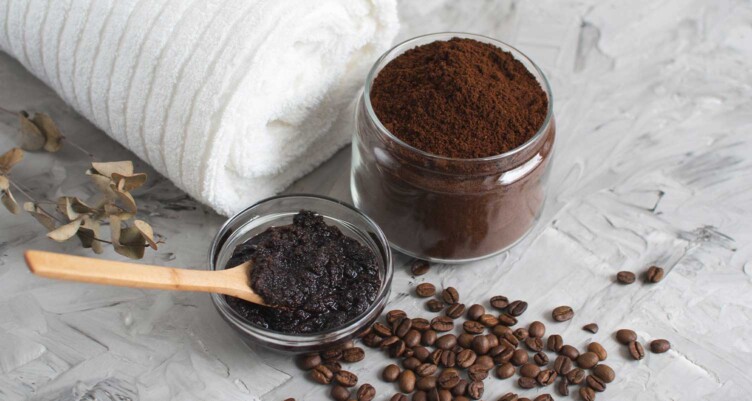Disposing of Coffee Grounds Down the Sink: Possible or Not? - Considerations You Should Know
Disposing of Coffee Grounds Down the Sink: Possible or Not? - Considerations You Should Know
Blog Article
We've noticed the article involving Can You Put Coffee Grounds in the Sink Garbage Disposal? listed below on the web and accepted it made perfect sense to share it with you on this site.

If you're a passionate coffee drinker, you may be wondering about the most effective method to take care of your coffee grounds. While it may appear hassle-free to clean them down the sink, this practice can cause a number of concerns for both your plumbing and the setting. In this post, we'll discover whether it's safe to put coffee grounds down the sink and talk about different disposal methods to consider.
Dangers of Putting Coffee Grounds Down the Sink
Plumbing Issues
Among the key interest in getting rid of coffee premises down the sink is the threat of clogging your pipes. Coffee premises do not liquify in water and can gather with time, creating a thick sludge that can block drains pipes and bring about costly plumbing repair services.
Ecological Impact
Past the potential damages to your plumbing, placing coffee grounds down the sink can also damage the environment. When washed into the sewage system, coffee grounds can contribute to blockages in sewage system lines and therapy facilities. Additionally, the high focus of raw material in coffee premises can diminish oxygen degrees in waterways, negatively impacting marine life.
Alternatives to Disposing of Coffee Grounds
Composting
One environmentally friendly alternative for taking care of coffee premises is to compost them. Coffee premises are abundant in nitrogen, making them an exceptional enhancement to compost piles or bins. As they decay, they include nutrients to the dirt, enhancing its fertility and structure.
Trash Disposal
If you do not have a composting arrangement, one more choice is to simply toss your coffee premises in the trash. Be sure to secure them in a compostable bag or container to stop odors and leakage. While this approach does not use the exact same environmental advantages as composting, it's a risk-free and convenient means to take care of coffee premises.
Tips for Proper Disposal
Use a Sink Strainer
To stop coffee premises from entering your sink's drain to begin with, take into consideration using a sink filter. These economical devices catch solid particles, consisting of coffee grounds, stopping them from triggering clogs.
Routine Maintenance
Regardless of exactly how you choose to dispose of your coffee premises, it's necessary to keep your plumbing on a regular basis. Schedule routine drain cleansings to remove any kind of build-up and ensure that your pipelines continue to be clear and free-flowing.
Conclusion
While it may be tempting to wash coffee premises down the sink for benefit, doing so can have significant effects for your plumbing and the environment. Rather, consider composting your coffee premises or dealing with them in the garbage. By adopting accountable disposal techniques, you can appreciate your coffee guilt-free while minimizing your ecological impact.
Coffee Grounds Down The Drain: Are They OK?
Can Coffee Grounds Go Down the Sink?
You may be thinking, “But I pour them down the sink drain every day and I’ve never had a clogged drain!” You see, coffee grounds come from coffee beans, which are virtually rock hard by the time they’re ground and brewed. You certainly wouldn’t want to grind up the pit from a peach, apricot, or nectarine that is about just as hard because they wouldn’t break down like other foods, and it’s the same with coffee beans!
If you usually grind coffee beans in the garbage disposal because it seems the cleanest and convenient, we don’t fault you for that. And anyone who has ever had to clean up the trash with spilled coffee grounds after a dog got into it would understand the rationale. Unfortunately, coffee grounds do not break down in water, so instead of grinding up and washing away as normal foods do in a garbage disposal, they clump together and as time goes by, the grounds can form a clump and pack the drain until it develops a clog.
What to Do With Coffee Grounds
So, what do you do with coffee grounds if you can't put them down the drain? You could of course just throw them in the garbage, but we encourage you to give these practical uses for them a try!
Since coffee grounds contain key minerals for plant growth, you can use them to fertilize your garden. Coffee grounds not only fertilize gardens because they are mineral-rich, but they are also great at absorbing contaminants in the soil, particularly heavy metals. Coffee grounds are said to attract worms, which help gardens flourish. You can use coffee grounds as fertilizer by sprinkling them around your plants. You can compost your coffee grounds and use them at a later time. Coffee grounds are great insect repellents when you place them in bowls or sprinkle them around the areas you want to repel insects. To remove fleas from your dog or cat, simply shampoo your pet then rub coffee grounds throughout their fur. Rinse them off and dry as usual. Like baking soda, used coffee grounds can eliminate odors. You can place them in a bowl in the fridge and let them do the work! Mix coffee grounds with coconut oil for a wonderful face or body scrub, or to reduce the appearance of cellulite. https://www.wintershomeservices.com/blog/2019/august/coffee-grounds-down-the-drain-are-they-ok-/

We were introduced to that report on Is it safe to dispose of coffee grounds down the sink? through a good friend on a different blog. Sharing is good. Helping others is fun. Bless you for your time. Please pay a visit to our blog back soon.
Click Here Report this page